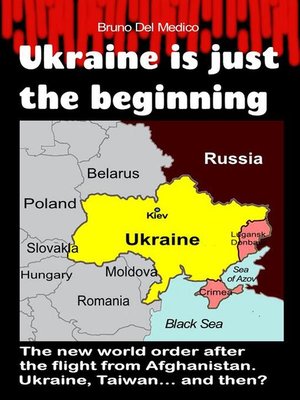
Sign up to save your library
With an OverDrive account, you can save your favorite libraries for at-a-glance information about availability. Find out more about OverDrive accounts.
Find this title in Libby, the library reading app by OverDrive.



Search for a digital library with this title
Title found at these libraries:
| Library Name | Distance |
|---|---|
| Loading... |
On February 4, 2022, Putin took part in the opening ceremony of the Winter Olympics. But what was he going to do there, given that Russia was excluded from these games? Evidently, the aim was to meet Chinese President Xi. Surely the two will have toasted the most tragically wrong move that Biden could make.
After the meeting, Putin spoke of "unprecedented relations", and Xi added: "We are working to achieve true multilateralism".
Indeed, the meeting produced a long 99-paragraph statement on shared positions on a number of global issues. The two signatories wanted to demonstrate that the agreement between Beijing and Moscow "has no limits" and "knows no forbidden areas".
In other words, the agreement can expand further also in the military and technological fields, where the two governments have been collaborating intensively for some years, as well as in their respective aims of territorial expansion.
On the merits, the agreement touches on a crucial point: the Taiwan question. Russia reiterates that it considers Taiwan to be an "inalienable part" of China and is opposed to the independence of the island. The Ukrainian question is not mentioned, probably in order not to commit China to an ongoing conflict, but the tacit gentlemen's agreement is evident.
Comments such as "If the Ukrainian crisis spills over into a war, this would open up a historic opportunity for China to resolve the game with Taiwan" appeared on Chinese-language social media. These messages are not censored, a sign that they want to be circulated.
So, Ukraine, then Taiwan. This book raises the question of what the next goals will







